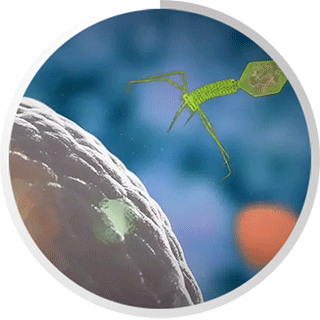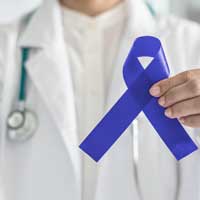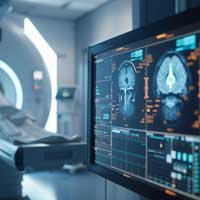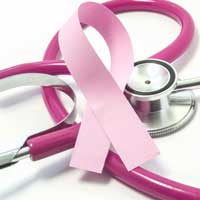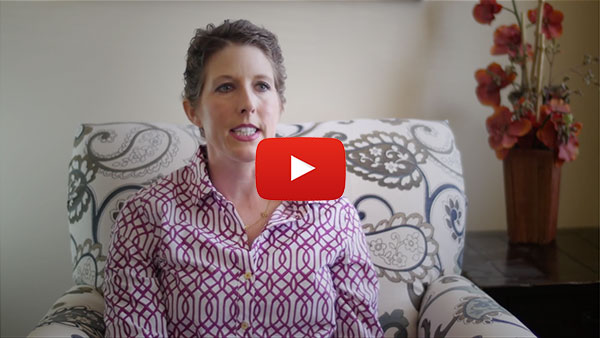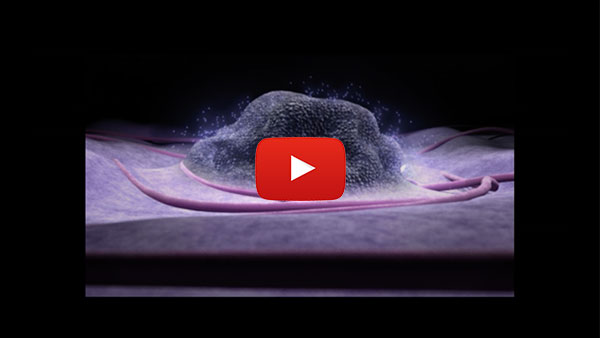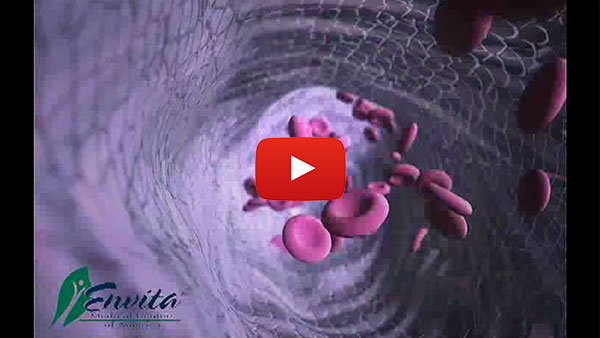What is Genetically Targeted Fractionated Chemotherapy?
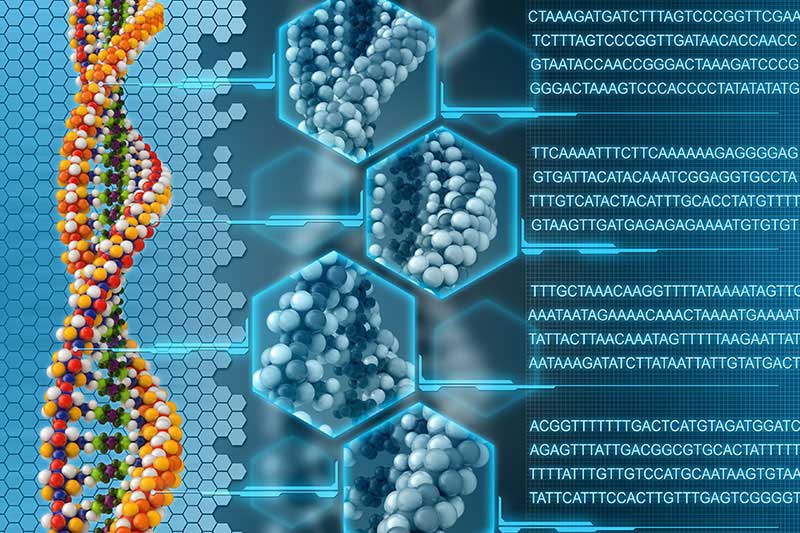
Major discoveries in the cancer world are pointing toward more personalized methods for treating cancer, giving a better explanation and solution as to why only a small percentage of people respond satisfactorily to chemotherapy treatments.
In conventional cancer centers, chemotherapy is the standard drug regimen for patients suffering with cancer. We reject that approach and believe that no single treatment should become standardized, due to the overwhelming fact that each cancer patient is unique. Rather, our medical team has developed a specialized and highly effective approach to chemotherapy and other treatments that are genetically-targeted, fractionated and personalized to fit the needs of our patients. Many patients that have been unresponsive to other cancer treatment programs have often been successful with our approach.
The National Cancer Institute has been researching chemotherapy-driven cancer treatments for people with stage 3 and stage 4 cancer for over 40 years, yet those treatments haven't seen a lot of progress. In fact, the treatments have incredibly low success rates. Molecular and genetic testing indicates that standard chemotherapy treatments are a staggering 75% ineffective.
In this article, we'll explore the new science and important application of translational cancer genomics and epigenetics in a unique integrative medical setting and how this information can help patients and clinicians alike attain much more personalized cancer treatment plan.
We hope this information will provide you with a clearer understanding of this complex disease and give you some helpful solutions to helping you or a loved one. We don't claim to have all the answers, but we are sharing our over a decade of cancer treatment as well as our understanding and unique solutions to the current challenges with chemotherapy.
The Scientific Consensus on a Genetically Targeted Future
The scientific understanding of cancer cell biology has continued to improve as better ways of targeting cancer cells are found through genetic information, the individual expressions of cancer cells and the microenvironment around the cancer cells themselves. Our team has spent over a decade bringing more personalized integrative cancer treatment application to help our patients target cancer cells, while supporting their overall health and energy.
Researchers have discovered numerous biomarkers and molecular changes that occur within a person's cancer genetics that can be used to better target treatment. In addition, studies have shown that two people with the same tissue type of cancer and staging may respond to treatment differently based on their own individual parameters. This is one major reason that people respond differently to the same treatment and even have different side effects to the same treatments. This application is vastly different than what is being practiced in most hospitals and cancer centers.
At the world famous Cell Symposia: Hallmarks of Cancer, that took place in San Francisco in 2012, numerous presenters made it very clear that the way forward in curing cancer is understanding each person's cancer cell biology via genetic and molecular profiling [1]. This symposium included talking points from Robert Kruger, Deputy Editor at Cell, Lynda Chin of MD Anderson Cancer Centre, Sandra Horning of Genentech, Richard Gilbertson of St. Jude Children's Research Hospital and Bob Weinberg of Whitehead Institute for Biomedical Research.
The Science Behind Our Solutions
Improvement in cancer survival has come mainly from early detection and surgical removal in early stages of certain cancers (breast, prostate and colon), however whenever spread is involved with advanced metastatic cancer, the old or rather current chemotherapy practices are not much more effective at aiming for long-term remissions, dare we say cure. The War on Cancer has had several of the same challenges for decades, including difficulty:
- Reforming the clinical trials system, including reducing costs and including better designed and more complete studies to review multi-step approaches to improving quality of life and lengthening of overall life for each patient. Many of these new blockbuster drugs only increase survival for a few months with poor quality of life.
- Re-adjusting the drug approval and regulation processes and reducing costs. It takes about $1 billion dollars currently to produce a new cancer agent and many are stopped in stage two of the process.
- Improving cancer treatment and prevention. Many existing chemotherapy drugs have been shelved due to political and legal reasons. Agents may have not have worked in one type of cancer trial, but paired with genetic and molecular profiling it could be helpful for some patients. Unfortunately, we'll never know because the results aren't given much room to improve.
- Formulating new, more specific and science-based approaches toward impacting the epigenetic environment around cancer cells. Epigenetic refers to the substances that influence or cause cancer growth, cancer mutation or resistance.
- With all these new biomarkers and molecular profiling discoveries, there lacks better ongoing monitoring and testing through our treatment process as cancer cells become resistant to treatment and even mutate. This is making it very necessary to personalize treatment.
Additional Background on Cancer Growth and Chemotherapy
Having translational cancer genomics, biomarkers and molecular profiles is like having the blueprints to better treat the patient and provide a much better way forward. Chemotherapy treatments, both presently and in the past, have focused solely on the location of the tumor, tissue pathology and staging, but the future of research and our group included focuses on the genetic typing and molecular profiling of the tumor, giving the patient a much needed edge.
Cancer cells are constantly mutating and becoming more resistant to treatments like chemotherapy and radiation. Studies suggest that every tumor and possibly even different cancer cells within the same patient can be genetically different, expressing different biomarkers and responding to treatments differently.
One of the main reasons for this heterogeneity of cancer cells is the ever-important epigenetic environment around the cancer cells that may contribute to mutation and uncontrolled growth. In a nutshell, cancer cell biology illustrates that successful cancer treatment is like trying to hit multiple moving targets at once. Our experience has shown that a multi-step approach including GTFC™ may provide helpful options to patients.
Most people have a general understanding of chemotherapy, but for the purposes of this article, let's review. Cancer is when your body's cells begin uncontrolled, unchecked growth that is malignant; it is caused by a mix of environmental toxins, infectious agents leading to chronic inflammation and genetic mutations. In fact, these mutations can continue throughout the evolution of the cancer. Chemotherapy is a treatment for cancer using cytotoxic chemicals (poisonous to living cells) and other drugs.
Typically, the problems with high-dose and protocol-driven chemotherapy treatments are the many adverse side effects, which depends on the type of medication used. These side effects become worse when combination of drugs are given to help reduce resistance from cancer cells, but it can often times increase toxicity in the patient. This explains why some chemo drugs work for some, but don't work for others. In fact, it has been proven that chemotherapy increases survival only slightly over 2% in late-stage cancers for five-year survival [2].
In the end, there is no way of knowing where these chemotherapy agents are going to work at all or if the cancer is going to come back even worse. Some of the most common side effects include:
- A weakened immune system, which may lead to caecitis, also known as typhlitis, which is inflammation of the large intestine.
- A stronger tendency to bleed or bruise.
- Gastrointestinal distress, especially nausea and vomiting, diarrhea and constipation, which can lead to dehydration and malnutrition.
- Fatigue, as the treatment can be physically exhausting for the patient, especially when coupled with cancer-related fatigue.
- May contribute to muscle atrophy, or muscle thinning.
- Hair loss, which is superficial, but can lead to low self-esteem, poor self-image and depression.
These side effects might be tolerable if you knew it was a once and done thing, but that is not at all the reality for patients. It's important that we step up our efforts to help patients.
Most cancer centers and hospitals have adopted a "let the patient die in dignity" attitude, but our group is passionate about helping patients live with dignity. That's why we've been spending over a decade developing what we call the most comprehensive approach. In that approach, we can utilize GTFC™ (Genetically Targeted Fractionated Chemotherapy).
Genetically Targeted Fractionated Chemotherapy
Most cancer clinics have a "one-size fits all" approach to cancers, but because each tumor is unique (based on specific genetics in the cancer itself, markers on the surface of cancer cells and epigenetic environment around the cancer cells toxins, infections, deficiencies and inflammation factors that cause cancers to spread and mutate) this approach fails to answer the bigger question.
That's where Genetically Targeted Fractionated Chemotherapy comes in. In short, GTFC™ is an advanced form of chemotherapy that applies molecular profiles, genetic typing and targeted treatment, providing patients with much needed alternatives. This method allows us to use multiple drugs in lower dosages to help reduce resistance, enhance targeting and improve overall treatment.
GTFC™ sessions are also shorter and use lower-dosages. Therefore, GTFC™ is much less taxing on your body. When combined with targeted immunotherapy and nutritional therapy, patients that utilize GTFC™ often claim they have more energy and feel healthier compared to the standard methods used.
It's fair to say that this technology is still in its infancy and getting better all the time, but if you ask patients like Nicole Sanko, she'll tell you it was a lifesaver. It was this approach coupled with a complete treatment protocol that brought her into remission in late-stage endometrial adenocarcinoma. It's worth noting some patients were hospice-bound, being told to go home and die, but have now enjoyed a longer and better quality of life.
Other Protocols Combined with GTFC™
Most cancer clinics toss out chemotherapy as the one and only form of treatment coupled with radiation. Our group has furthered the protocols to include treatment to boost the body's natural defenses, so the GTFC™ is more effective. These protocols include a host of integrative, specialized treatment steps developed by our team to enhance patient healing. In our clinical experience, helping slow down these epigenetic environmental factors are what truly impact cancer mutations, growth and spread. Those therapies involve:
- Immunotherapy – State of the art forms of immunotherapy to rebuild a patient's immune system. After all, the immune system is the first and last defense against any disease. By strengthening these defense systems, it makes it easier for treatments such as chemotherapy to be effective, in our experience. This is especially important when patients have infections and chemical toxins at the root of their cancer. Immunotherapy can function independent of genetic changes.
- Nutrition therapy – Modern food is pumped full of preservatives, toxins, GMOs and other horrible things that can severely impact one's health and in some cases, may even lead to cancer. An important alternative is organic and healthy foods that are immune-supportive. However, cancer patients have numerous deficiencies caused by the cancer itself, not to mention the chemotherapy and/or radiation. Intravenous nutrition, guided by detailed testing, is vital for energy and recovery.
- Chronic inflammation therapy – Chronic inflammation has been well-recognized as a cause of cancers for a long time. However, agents that cause chronic inflammation not only cause cancers, but also impact its growth, signaling and spread.
- Oxidative Medicine – Nobel Prize winner Dr. Otto Warburg famously hypothesized "…the prime cause of cancer is the replacement of the respiration of oxygen in normal body cells by a fermentation of sugar," meaning, cancer is caused by a lack of oxygen. Today's modern cancer cell biology has shown he was on the right track as mitochondrial health and shifting to a more oxygen-rich environment may protect healthy cells and further neuter cancer cells.
What GTFC™ can do for Patients
Based on our clinical experience, 75% of patients were treated with the wrong chemotherapy before enacting the best testing practices. We feel the amount of planning, testing and personalization available in GTFC™ exceeds what is practiced throughout hospitals and major institutions today. It's fair to say that no single approach has all the answers to cancer treatment, but research clearly shows it lies in your cancer genetics and personalized information.
We have encountered several colleagues that are excited by our work but also skeptics that feel that the data is insufficient. However, the majority of our patients are outperforming in multiple categories, most importantly increasing the quality and length of life.
The bottom line is, when appropriate and combined with other programs, GTFC™ helped patients have access to powerful personalized cancer treatment options. The best part about these treatments is they are helpful for most, if not all cancers. If you have questions about your specific cancer, want to learn more about this revolutionary new chemotherapy protocol and related treatments or need an answer to any of your questions, please contact us today.


